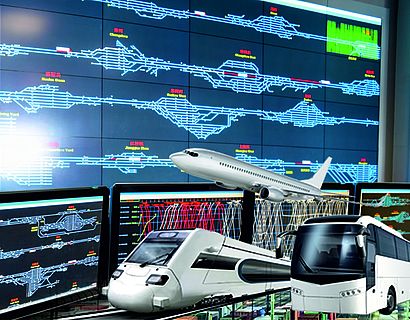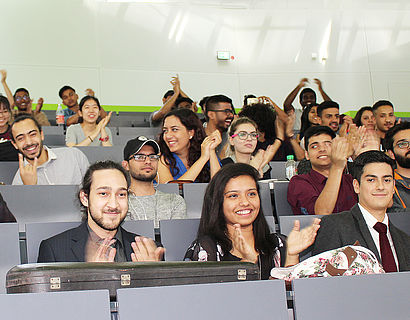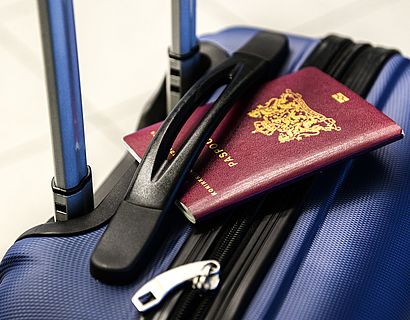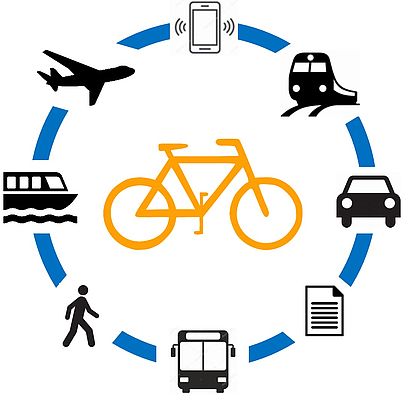The master's programme in “cycling in intermodal transport networks” will be realized as a consecutive, three-semester course with a value of 90 ECTS points with initially 20 study places in the engineering and natural sciences department in the summer semester 2021. It is consecutive to engineering-related bachelor's degree programmes with a transport focus, such as: B. transportation system engineering , infrastructure systems or passenger traffic management. The course is funded by an endowed professorship from the Federal Ministry of Transport and Digital Infrastructure (further information in German).
Key facts
|
Degree |
Master of Engineering (M. Eng.) |
|
Language of instruction |
German |
|
Modes of study |
full-time |
|
Standard duration |
3 semesters |
|
Programme start |
summer semester |
|
Fees |
no tuition fees (the university only charges semester fees each semester) |
|
Application deadlines |
current application deadlines |
|
Faculty |
Engineering and Natural Sciences |
Study objectives
-
Graduates should be able to independently develop and implement complex cycling concepts, strategies and plans in an intermodal context.
-
The aim of the course is to develop specialist competencies such as applicable legal regulations, design guidelines for traffic routes, possible uses and limits of different drive technologies, performance features of transport and handling technologies, construction and testing of database structures, areas of application for various data transmission technologies, each with a focus on cycling and its intermodal link to mediate and apply them at the end of their studies.
-
In addition to the acquisition of specialist skills, there is also a focus on the methodological skills, such as the selection and application of planning tools, assessment procedures and communication tools, methods of project management, methods for test procedures and the presentation of complex relationships in diagrams, maps and plans.
-
Furthermore, in addition to the technical and methodological skills, social and personal skills should also be imparted to the students and should be strengthened.
Course contents
-
method-based and project-oriented studies with academic aspirations in close cooperation with practice partners
-
engineering focus with subject-related key competencies
-
practical project work for the design of intermodal cycling traffic, communication strategies and public relations
-
Guest contributions from cycling experts from practice and research
-
Master thesis on a current problem on intermodal cycling from practice or from research
Programme modulesOpen areaClose area
1st semester - methodological competences
Planning and operation
- Planning of intermodal networked infrastructure for cycling
- Business processes and economic operation
Use of technologies
- Digitization of intermodal cycling offers
- Technologies for intermodal connections
Acceptance and implementation
- Communication and social acceptance
- General legal and planning law frame
2nd semester - project studies
- Project on design of intermodal cycling
- Project on communication strategies and public relations
- Project from a semester-related, definable catalog of options
3rd semester - master thesis
- Thesis on a current problem on intermodal cycling from practice or from research
Career opportunitiesOpen areaClose area
The master's graduates have a wide range of activities in authorities, associations, engineering offices and companies that consider cycling in the overall transport system. They are the future designers of the interface between people, technology, the environment and society. They can also find their professional home in research and transfer and help to transfer research results to improve cycling (including in intermodal transport networks) among experts, politics and society and to achieve an increase in cycling acceptance among all stakeholders.
The master's program provides the basis for an entry into various management functions with a specialization in cycling.
Specific applications for graduates of the degree program include:
-
Development engineer for traffic management systems in cycling
-
Speaker in cycling planning and coordination in municipalities
-
System specialist in cycling in the planning of infrastructure projects
-
Project management in the telecommunications, IT and marketing environment for bicycle-related applications and services
Admission requirements and applicationOpen areaClose area
General admission requirements
Specific admission requirements
- A vocational first degree comprising at least 210 credit points (CP).
-
Proof of professional qualification is required. With the completion of a degree in transportation system engineering, traffic engineering and planing, transportation studies, spatial planning, city or regional planning, the required professional qualification is available. In the case of degrees in other courses of study, the professional qualification must be demonstrated by a focus on the subject area (e.g. skills in the areas of vehicle technology, infrastructure planning, traffic control, traffic management and operation, transportation economics, traffic logistics, traffic geography, traffic telematics, transportation law, technical computer sciences, database systems and data communication, project management). Appropriate evidence must be provided (see study and examination regulations on the right).
-
From winter semester 2021/22, prospective students with only 180 credit points (CP) can acquire the additional 30 credit points (CP) during winter semester at Wildau University and then start the three-semester master's programme in the following summer semester.
- To be admitted to this degree programme, overseas applicants must possess sufficient German language skills. This may be demonstrated with an overall grade of DSH-2 or better from the Deutsche Sprachprüfung für Hochschulen (DSH) language exam.
Application
- You can apply to TH Wildau online. All information you need to apply can be found on our central application page.






